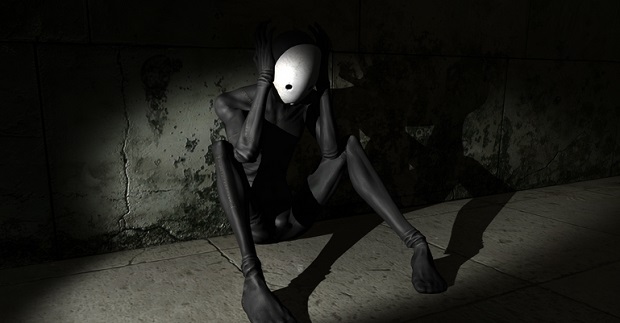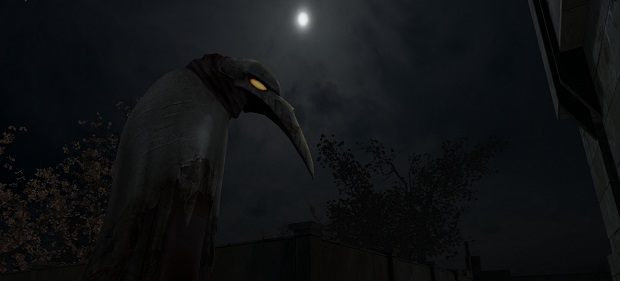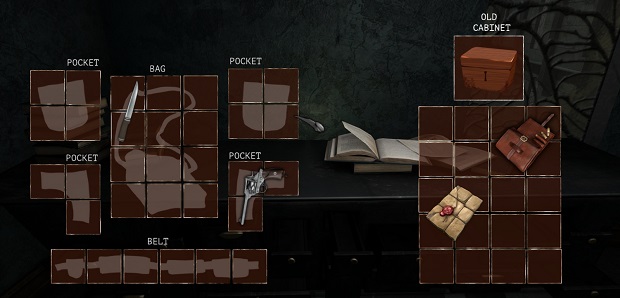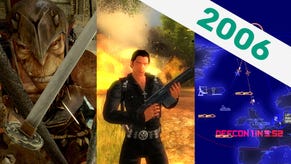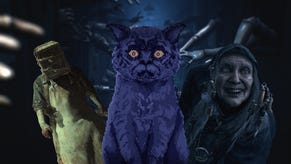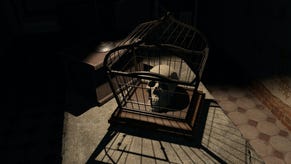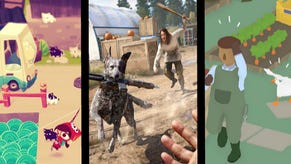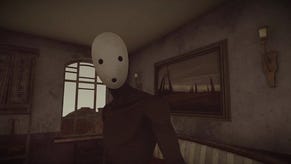Secrets Of The Ice-Pick Lodge: Pathologic Reimagined
Within the Black Lodge
I've been waiting for a Pathologic remake for years. My reaction to the announcement of a Kickstarter campaign to fund a remake was odd. I worried, I fretted. My concern was that a re-engineered version of the game would remove rough edges, sandpaper the strange angles and anomalies, and somehow expose the whole experience as more sterile, and less esoteric and unusual than the broken machinery of the original release. Now that the Kickstarter is live, here are details of a conversation with Ice-Pick Lodge about the project and the original game. Time to cast the major concerns aside, and to embrace the horror and the beauty.
Conceptually, Pathologic is a delicate creation, shot through with metanarrative and commentary on the idea of play as performance. It's a difficult game, in many ways, and that is part of its appeal - there is always a fear that polishing and perfecting a structure can remove necessary confusions, obstructions and dirt.
When I met Ivan Slovtsov and Alexandra Golubeva of Ice Pick Lodge at Gamescom, my first question was about what might be lost in (a new) translation. Looking back, that was a ridiculous way to start a conversation with two of the people responsible for the remake. There I was, letting them know that I'd seen through the original release's shoddy English translation and had found the diamonds in the rough. I understood the game's themes and I jolly well hoped they did as well.
Two hours of talk later left me absolutely convinced that nobody understands how to communicate the beauty, terror and complexity of Pathologic's decaying world and people better than Ice Pick Lodge themselves. The game is certainly unusual and allusive enough to allow many interpretations, and encourages the player to participate in the creation of meaning, but that doesn't mean the creators aren't doing most of the heavy lifting themselves.
There's a tendency with those who summon the vague spirit of the Death of the Author to enjoy their own cleverly constructed eulogy far more than the (exquisite) corpse laid out behind them. I'm guilty of that - fully prepared to fill any gaps in Pathologic with my own reading. My main concern was that a remake would plug those gaps with its own reasoning and explanation, and that in doing so it would become less mysterious and capable of tickling the intellect. In short, I was worried that a perfected Pathologic wouldn't live up to the half-imagined version that has been a foundation of my gaming life since I first played it.
What a relief to realise that Pathologic was always the smartest game though. The audience are involved but they don't need to tear the script to pieces.
"It wasn't a game to begin with. Not a computer game." Alexandra is explaining the origins of Pathologic and I'm about to find out that the story of its creation is so snug a fit that I scarcely believe it. "The setting was created as part of an RPG campaign, a pen and paper RPG. It all begins with the City."
Tempting to consider the City as Pathologic's star rather than its stage. Perhaps it'd be fair to do so - I refer to it as a character at one point and bite my point, but Alexandra shrugs. "That's fine. It has character." But where does it come from? Why was it born? I ask if it is inspired by elements of Russian urban landscapes and life.
"Partly, yes. If you come to Russia, you will see Pathologic." Not a quote that's going to make it onto the tourist board's website. "Like Russia, in Pathologic, everybody dies in the end?"
Isn't that true everywhere in the world?
"Yes, but in Russia - faster."
Pathologic was inspired by its country of origin, to an extent, but it doesn't derive from gaming traditions. "The way that the City works and how the narrative behaves is not something that we could take from games." Alexandra explains. "Literature, film and theatre. When the RPG campaign ended, Nikolay (Dybowskiy, studio founder and creator of Pathologic) looked for new ways to tell the story. He wrote a stage play based on it."
At that point, it all starts to make sense. Pathologic starts to make sense.
"Games are more like theatre than cinema. They have actors, the performance can change to fit the audience, the set and the props have roles and limits." It's a thought process I've explored many times but have never followed to any definite conclusions. The notion that games perform for a player is fascinating and in that sense, Pathologic's City certainly is a character because the actual stage is the screen.
Within its own narrative structure, it's a game that invites the player to take on several roles and to act within their constraints as well as possible, all the while pushing at the liminal aspects and trying to see what waits in the wings, hiding in the darkness. There's a direct albiet bizarre correlation with another of my favourite games - Ultima VII literally positions the player as precisely that, sitting in front of a screen, mouse in hand. One key difference is that Ultima recognises the player-Avatar as a protagonist, whereas Pathologic sees them as a participant. A potentially disruptive participant.
For the theatrical theme to work as intended, it's important for actors and extras to behave as intended. That wasn't the case in the original release. The translation was deeply flawed, Alexandra argues, even more so than I thought. Almost every piece of dialogue that manages to communicate the intentions of the original script does so accidentally and the sheer amount of work that is going into every detail of the remake's English version is astonishing.
"We can spend weeks with a name, trying to find the right words to express some meaning." The difficulty is in making references. A character's name in Russian might carry three meanings, through homonyms, puns and allusions. Almost all of those references are lost in the gap beteen languages but rather than having an English translation that simply sheds several layers of skin, Ice Pick discover alternatives.
The chances of finding an English word that will fit even an approximation of the multi-facted Russian original is slim so, in a curious and intriguing literary exercise, characters in each version might present a different face to the player. What's in a name? I don't know what The Mystery of Edwin Drood's noisy philanthropist Luke Honeythunder is called in Russian translations of the semi-novel, but lose either the 'honey' or the 'thunder' and the first impression changes.
Pathologic wants to engage with language on a level that most games don't even acknowledge, which is why my first questions, about the possible benefits of the shoddy original translation, were so inappropriate. Ice Pick care about the sound and meaning of every word, and are entirely capable of fashioning something surreal and decayed without relying on a text that is literally wounded.
The Kickstarter is not an attempt to fund a new translation though, it's an attempt to fund a new Pathologic. A great deal will remain, including the map of the City and the dissected narrative structure, but there are changes beyond the script and reworked visuals. There will be more content for starters, with additional plotlines and quests. Some content will be removed as well, as the original game contained 'filler'. All content should work toward the entire composition rather than taking up time along the way. No small talk.
Perhaps the biggest change will be to the systems that drive the life and death of the City. The disease will have its own processes, as will NPCs, to create the sense of a functional but dying place. Combat will still be tense and difficult, but won't involve pursuits across entire districts, with no sense of reaction from onlookers or those involved. All of the new behaviours will feed back into the game's central struggle to survive, and the City's 'economy' will make scavenging more comprehsible and comprehensive.
Pathologic was not made because its creator loved games, or because he wanted to work in the field of digital entertainment. It was made because a writer had a story to tell and found a medium that not only suited the story, but changed the story for the better. The existence of Pathologic, even in its flawed state, made the medium better as well.
The remake isn't just a case of correcting mistakes or polishing the surface. Ice Pick are a studio that makes games now, with a catalogue of diverse and unusual releases. Pathologic is the document of a first encounter with the medium, a story that moved from page to stage to screen and carried many of its ideas throughout the journey. The remake has been devised with a firmer understanding of how the medium can continue to enhance the systems that are in play, and if the people who play and work with games take notice, it'll push the medium forward again. Harder.
Compulsory reading: Quintin's words on Pathologic (part 1, 2, 3).
Upcoming: more details of the conversation and an Ice-Pick studio profile.



